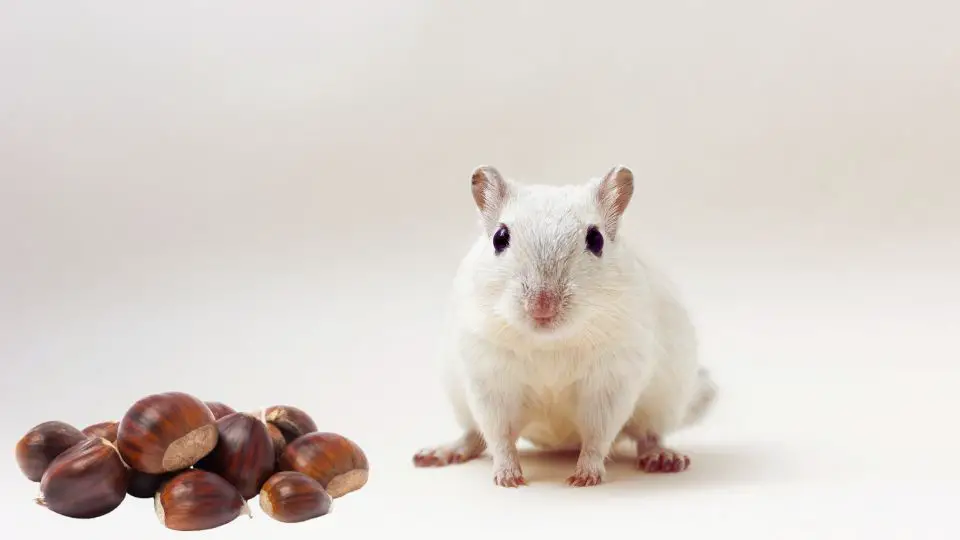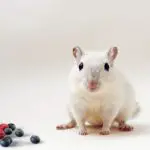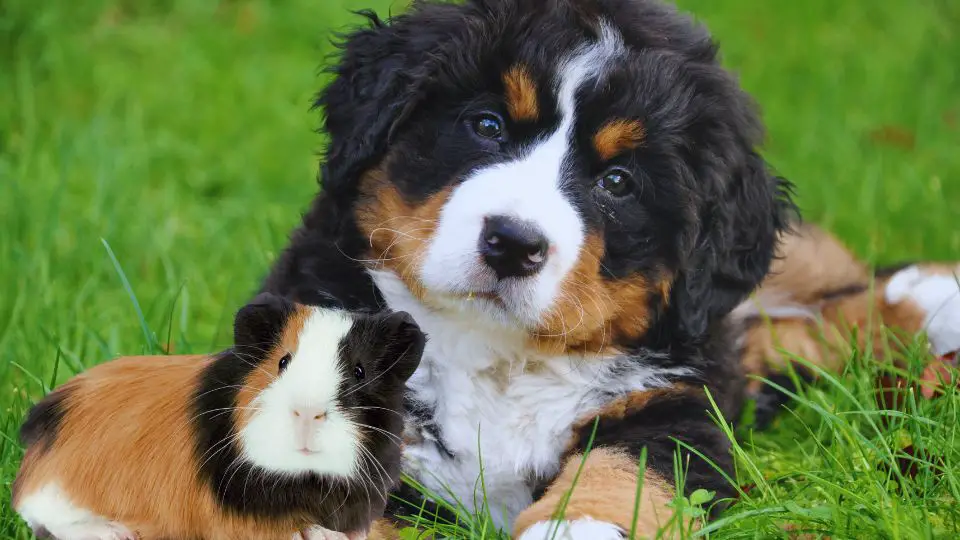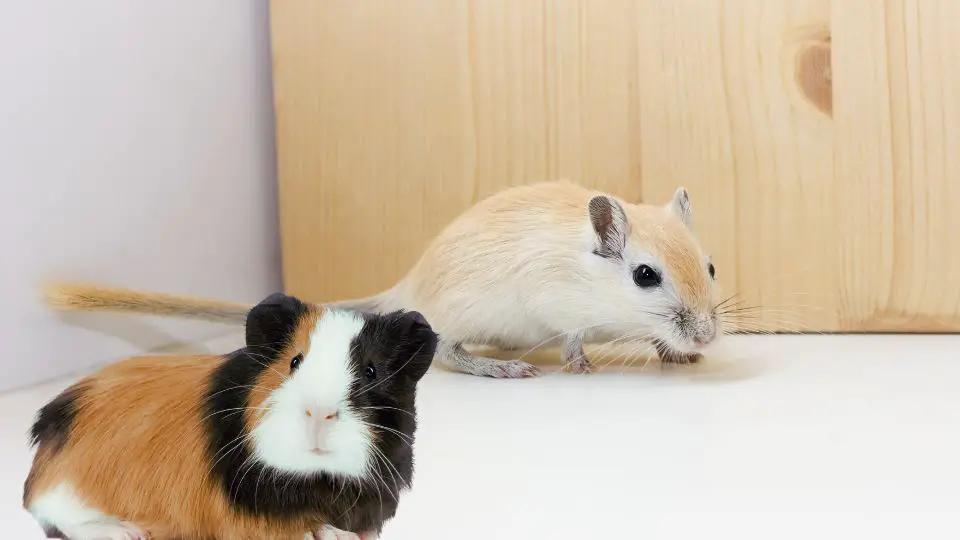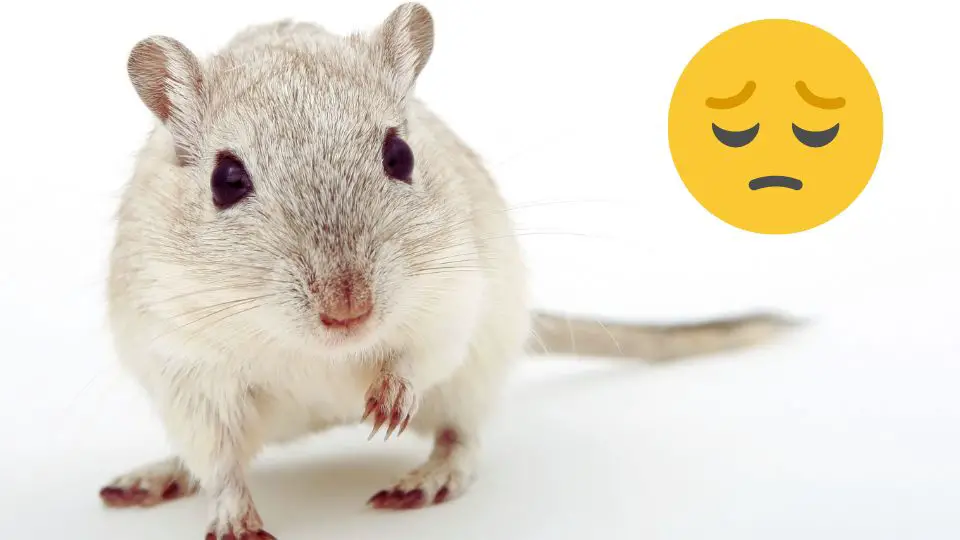Chestnuts are a popular treat enjoyed by many, but as a responsible gerbil owner, you may wonder if it’s safe to share this delicacy with your furry friend.
Yes, gerbils can eat chestnuts as they contain the optimal proportions of carbohydrates, fats, and proteins. Chestnuts are also rich in vitamins and minerals, including magnesium, B vitamins, iron, copper, manganese, and phosphorus.
In this article, we will explore the question: Can gerbils eat chestnuts? We will provide you with the information you need to make an informed decision about feeding chestnuts to your gerbil.
Overview of Gerbil Nutrition
Proper nutrition is vital for the health and well-being of your gerbil. Providing a balanced diet ensures they receive the necessary nutrients for optimal growth, energy, and overall vitality.
High-Quality Pellets
A staple of a gerbil’s diet is a high-quality pellet food specifically formulated for their nutritional needs. These pellets are readily available in pet stores and provide a balanced blend of essential vitamins, minerals, and proteins. Look for pellets specifically designed for gerbils, as they offer the appropriate nutrient ratios to support their health.
Fresh Vegetables
Gerbils also benefit from the addition of fresh vegetables to their diet. Leafy greens like kale, spinach, and lettuce are excellent choices. Other suitable options include carrots, bell peppers, cucumbers, and broccoli. Introduce vegetables gradually, starting with small amounts to ensure your gerbil tolerates them well.
Occasional Treats
Treats can be a delightful addition to your gerbil’s diet, but they should be given in moderation. Treats should never exceed 10% of their overall diet. Choose treats specifically made for gerbils, avoiding sugary or fatty options. Examples of suitable treats include small amounts of seeds, dried fruits, or whole grain cereals. Always check the ingredients and ensure they are safe for gerbils.
Chestnuts: Nutritional Content and Potential Benefits
Chestnuts are delicious nuts enjoyed by many, and you might wonder if they are suitable for your gerbil’s diet. Understanding the nutritional content and potential benefits of chestnuts can help you make informed decisions about feeding them to your furry friend.
Nutritional Content
Chestnuts offer a variety of essential nutrients that contribute to a well-rounded diet. They are relatively low in fat compared to other nuts and contain beneficial nutrients, including:
- Vitamins: Chestnuts are a good source of vitamins, particularly vitamin C, which supports the immune system, and B vitamins, which aid in energy metabolism.
- Minerals: Chestnuts provide minerals like potassium, magnesium, and manganese. These minerals play a role in maintaining healthy bodily functions, such as nerve function, muscle contraction, and bone health.
- Fiber: Chestnuts contain dietary fiber, which promotes healthy digestion and can help prevent constipation.
Potential Benefits
Including chestnuts in your gerbil’s diet, in moderation, can have several potential benefits:
- Energy Source: Chestnuts are a good source of carbohydrates, providing energy for your gerbil’s daily activities and bodily functions.
- Antioxidant Properties: Chestnuts contain antioxidants, such as vitamin C, that help protect cells from damage caused by harmful free radicals.
- Variety in Diet: Adding chestnuts as an occasional treat can introduce variety to your gerbil’s diet, which is important for their overall enjoyment and well-being.
Note that while chestnuts can offer nutritional benefits, they should only be given as an occasional treat in small quantities. Moderation is key, as chestnuts are higher in carbohydrates compared to the typical gerbil diet. Feeding them excessively may lead to weight gain or digestive issues.
Can animals eat raw chestnuts?
Raw chestnuts can be challenging for animals, including gerbils, to digest. They contain high levels of tannic acid, which can be toxic and cause gastrointestinal upset. It is recommended to cook or roast chestnuts before offering them to your gerbil or any other animal.
Considerations and Risks
While chestnuts can offer nutritional benefits, it’s crucial to be aware of potential risks associated with feeding them to gerbils. Understanding these considerations will help you make informed decisions about incorporating chestnuts into your gerbil’s diet.
High Fat Content
Chestnuts contain a moderate amount of fat compared to other nuts. While fat is an essential part of a gerbil’s diet, excessive fat intake can lead to weight gain and related health issues, such as obesity and reduced mobility. Remember that gerbils have specific dietary requirements, and their primary food source should be high-quality pellets designed for their nutritional needs.
Digestive Issues
Gerbils have sensitive digestive systems, and introducing new foods can sometimes lead to digestive upset. Chestnuts are starchy and may be challenging for gerbils to digest in large quantities. Feeding chestnuts in excess or too frequently can cause gastrointestinal problems like diarrhea or bloating. You should closely monitor your gerbil’s response to chestnuts and discontinue feeding them if any adverse digestive symptoms occur.
Moderation and Portion Sizes
To mitigate the risks associated with chestnut consumption, moderation is key. Chestnuts should only be offered as an occasional treat and should not exceed 10% of your gerbil’s overall diet. When introducing chestnuts, start with very small portions to gauge your gerbil’s tolerance and observe any adverse reactions. It’s also advisable to chop or grind chestnuts into small pieces to make them easier for your gerbil to chew and digest.
What nuts can gerbils not eat?
While gerbils can enjoy some nuts as treats, there are a few that should be avoided due to potential health risks. Avoid feeding gerbils almonds, walnuts, pecans, and macadamia nuts. These nuts may be high in fat or have properties that can be harmful to gerbils. Stick to safe alternatives such as sunflower seeds, pumpkin seeds, or small amounts of unsalted peanuts as occasional treats.
Alternatives to Chestnuts
While chestnuts can be an occasional treat for gerbils, you should have a variety of options to offer as alternatives. Providing a range of safe and suitable treats ensures your gerbil has a diverse diet and allows for enrichment. Here are our recommended alternative treats that you can offer to your gerbil companions:
Seeds
Gerbils enjoy a variety of seeds as treats. Sunflower seeds, pumpkin seeds, flaxseeds, and sesame seeds are all safe options. However, offer them in moderation due to their high fat content. A few seeds a couple of times a week can be a delightful treat.
Dried Fruits
Dried fruits are a tasty and nutritious treat for gerbils. Raisins, dried apricots, dried apples, and dried bananas are all suitable options. Remember to offer them sparingly as they are high in natural sugars. Cut them into small pieces to make it easier for your gerbil to eat.
Whole Grain Cereals
Unsweetened whole grain cereals, such as plain Cheerios or unsweetened puffed rice, can be given as an occasional treat. Ensure they do not contain added sugars, artificial flavors, or unhealthy additives.
Fresh Vegetables
In addition to their regular vegetable intake, gerbils can enjoy certain fresh vegetables as treats. Carrot slices, broccoli florets, small pieces of bell pepper, and cucumber slices are all safe options. Introduce new vegetables gradually and observe your gerbil’s response.
Herbs
Some herbs can be offered as treats to provide additional flavors and enrichment. Safe herbs for gerbils include parsley, dill, cilantro, and basil. However, avoid excessive amounts, as some herbs may have a strong taste or be too aromatic for your gerbil’s liking.
Remember, treats should only make up a small portion of your gerbil’s overall diet, typically no more than 10%. Providing a balanced and varied diet of high-quality pellets, fresh vegetables, and occasional treats will ensure your gerbil’s nutritional needs are met.
Conclusion
In conclusion, the question of whether gerbils can eat chestnuts has been explored. While chestnuts offer certain nutritional benefits and can be a delicious treat, they come with considerations and risks.
The high fat content and potential digestive issues associated with chestnuts mean that they should be offered in moderation and in proper portion sizes. It’s essential to prioritize a well-balanced diet for your gerbil, with high-quality pellets and fresh vegetables as the primary sources of nutrition

